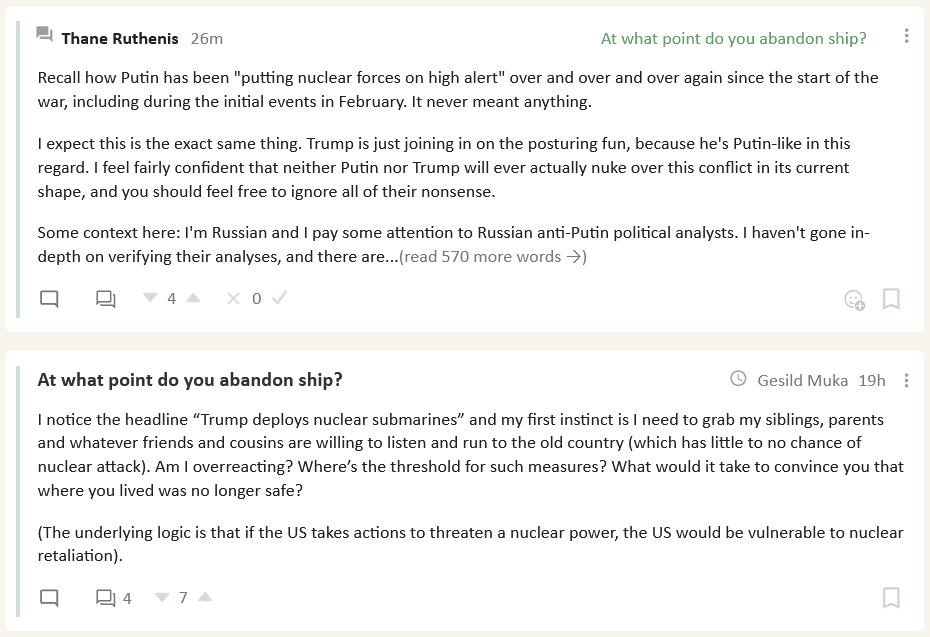Review: Dr Stone
Recently, I watched anime Dr Stone, and noticed that it was starting many thoughts like "why did social interactions turn out so?", "what might be the best way out of situation?" - in short, rationality-related. I really enjoyed watching with pauses to think for myself, and recommend it to all who are fine with anime. In next three sections, I explain plot parts which felt especially inspiring to me, widening one's view on rationality - so, spoilers follow. Section "Wrapping up" deals with the whole show quality. A reminder: this is fiction, not real-world evidence. Premise The protagonist, Senku Ishigami, is a "scientist" teen, excited to advance the world of technology. In particular, once he wanted to build a rocket; with some help and some years of exploring ideas, he achieved that dream, sending statuettes of his friends and himself to orbit. Suddenly, birds began turning into stone. Senku noticed this phenomenon through social networks and, looking at reports from all over the world, managed to estimate the origin point of effect. Though, he wasn't able to discover any way to counteract the effect: very soon, the world was flooded with green energy, turning all humans into stone. The teen noticed that he was still alive and began counting seconds to track the current season (as "waking up" in winter would be a probable death). And indeed, after a few thousand years the stone shell broke open, allowing Senku to start doing something. He also took care not to remove remaining pieces of stone, inferring that depetrification process involved some regeneration all around. Interpretation To this point, Senku has already 1) built a somewhat working rocket iterating over several possible designs, 2) discovered a petrification effect origin, 3) anticipated waking up and concentrated for survival. It should also be noted that he had a few friends who had fun with him but no girlfriends. These behaviors align with acquiring knowledge (both from others' past obse

At a certain point, graph theory starts to include more material - planar graph properties, then graph embeddings in general. I haven't ever heard someone talking about a 'planar binary relation'.